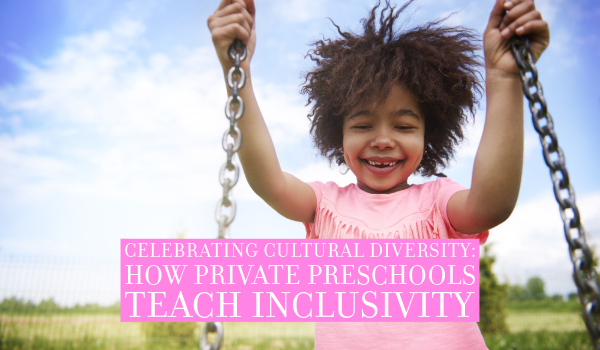When it comes to creating a well-rounded education at a local preschool for children, there is more involved than just academics. A well-rounded education also teaches a child how to function in the world as they meet and interact with new people, and includes an understanding of inclusivity. Private institutions have a unique advantage when it comes to teaching these skills. Keep reading to learn how.
What Is Diversity in a Local Preschool?
Within the private school context, children interact with a smaller group of people on a day-to-day basis. This makes it even more important to emphasize cultural celebration, awareness, and inclusivity.
Diversity is the combination of people with differing backgrounds. This could be based on religion, race, ethnicity, culture, gender, or even financial status. Other categories could include language, age, and ability. Similarly, equity deals with the practices of institutional or systematic processes and procedures to ensure that fairness, justice, and impartiality are practiced in a specific setting.
Inclusion is what results when the two above-mentioned topics are handled properly. Everyone in that setting feels that they are being represented, included, heard, and served. It’s the responsibility of a private institution to provide this for every student.
How Is This Taught?
These principles and values must first be prioritized by the managing board of each school. Oganizationally-held values will trickle down into the culture of the institution. Specifically, though, there are a few steps that can be taken to ensure these principles are passed on to children.
First, these values must be modeled in the behaviors of each staff member. This includes teachers, administrators, and assistants. Second, staff should plan for opportunities to openly celebrate diversity. Little ones can learn about various cultures and traditions in classrooms through fun, age-appropriate, and respectful activities. Lastly, everyone should be held accountable for upholding these principles. There should be policies in place that outline consequences for bias, discrimination, and exclusion.
Many parents understand the importance of enrolling their child in preschool, as 50% of three to four-year-olds are enrolled in a pre-k program, according to USA Facts. If you’d like to learn more about our local preschool options, contact your local options. They are here to help your family on your little one’s educational journey.



